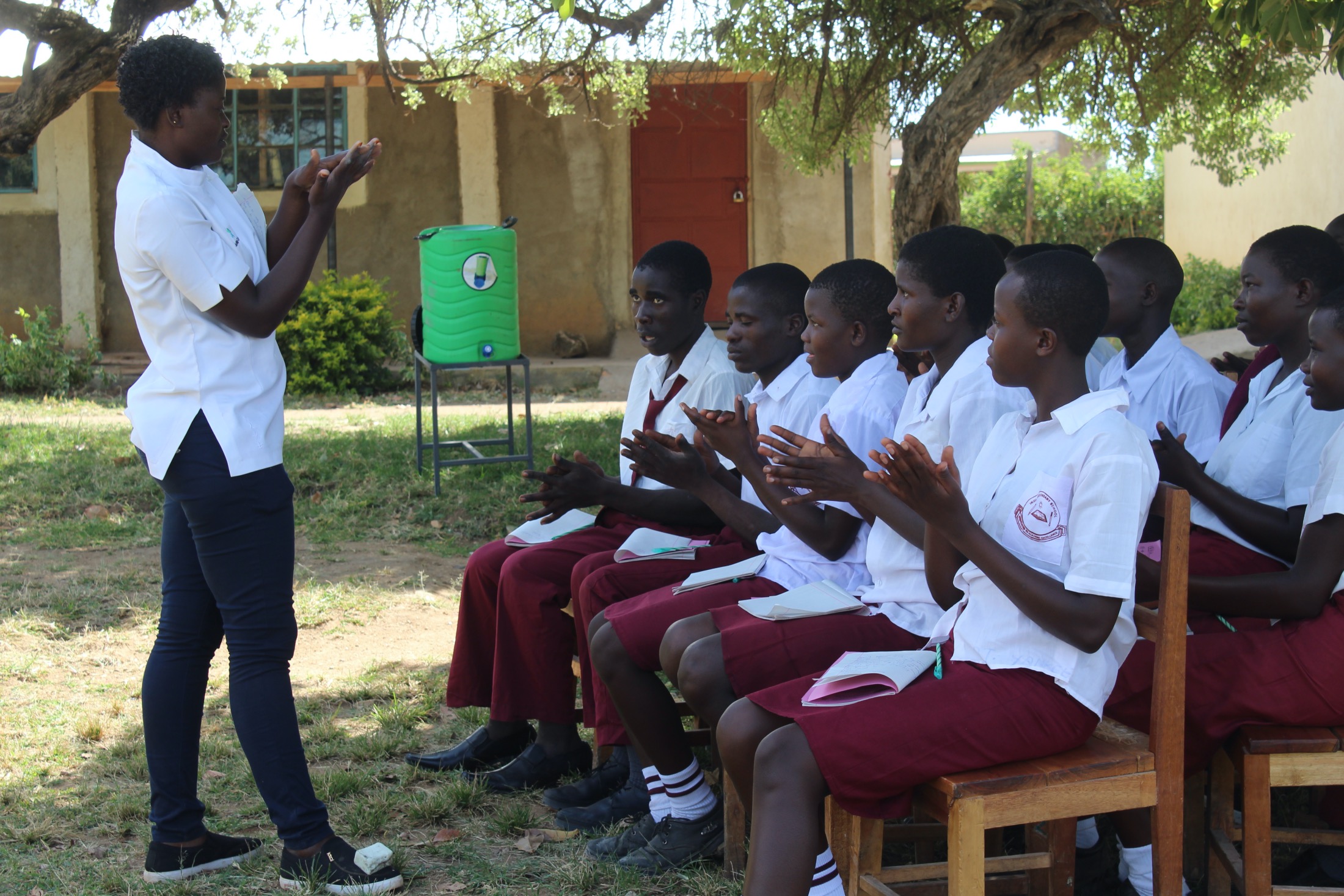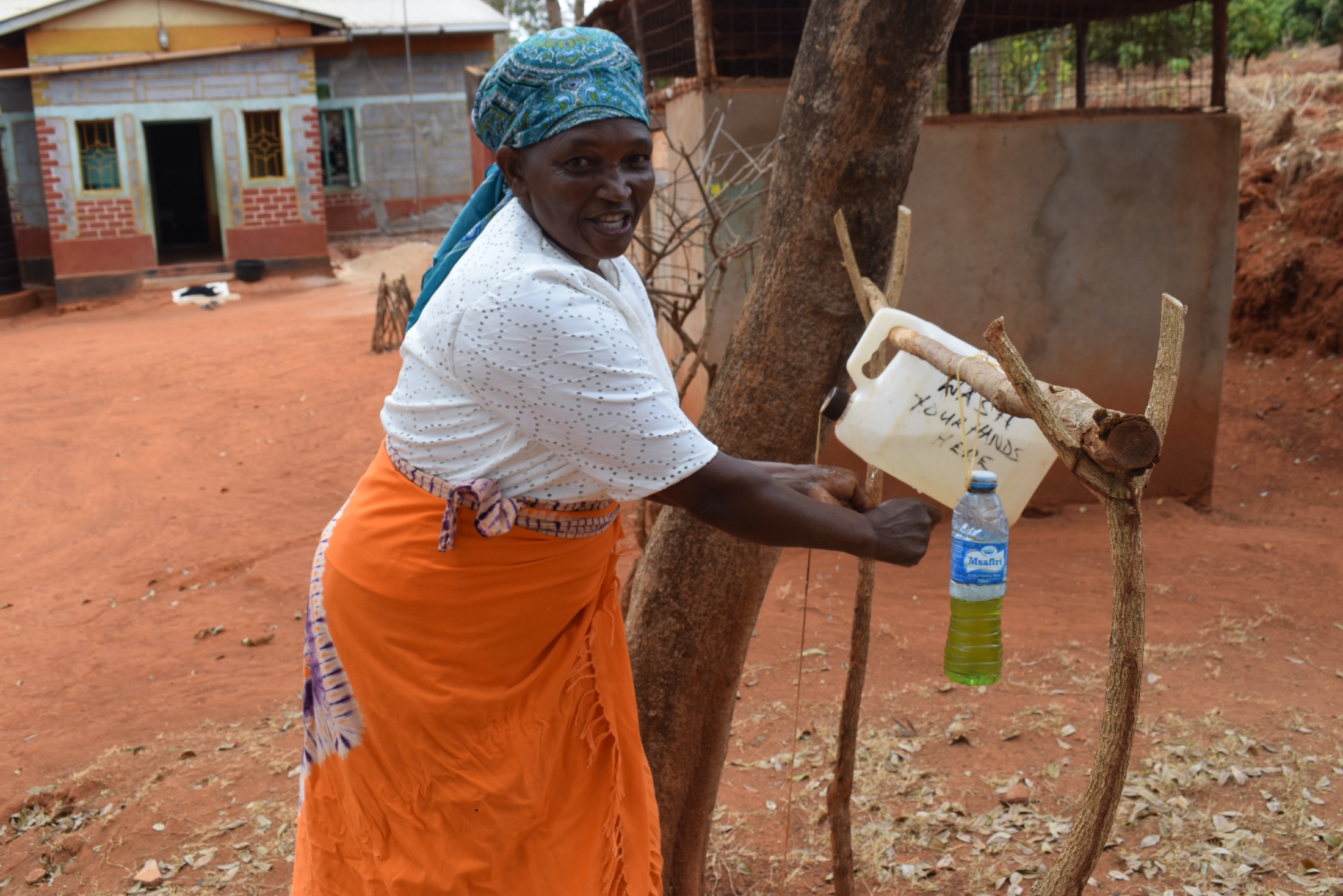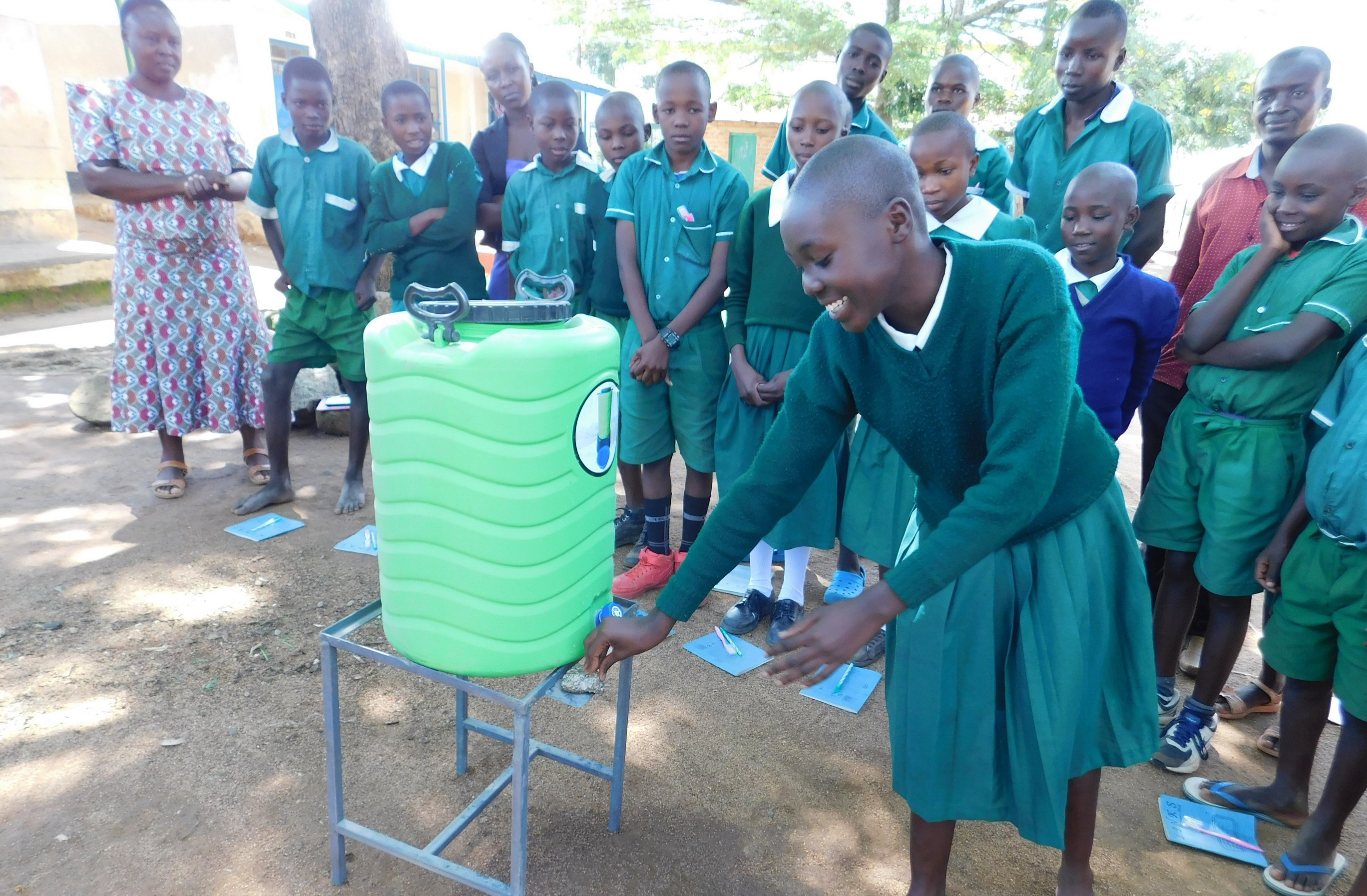Water, sanitation, and hygiene enable healthy lives

Students learn the proper way to wash their hands at a school training in 2019 (prior to social distancing)
Global awareness about the importance of handwashing with soap is on the rise due to the COVID-19 pandemic. For The Water Project, sanitation and hygiene training have always been a crucial part of our work – from building latrines in schools to teaching communities about the proper steps of handwashing.
Water, sanitation, and hygiene are all linked. The lack of access to these three crucial things contributes to more than 800,000 deaths per year. At a time when public health messaging is encouraging handwashing, an estimated 3 billion people around the world do not have the ability to wash their hands at home, according to the United Nations Children’s Fund (UNICEF).
Programs that address water, sanitation, and hygiene together have a significant impact on communities. Access to better water, sanitation, and hygiene can prevent the deaths of 297,000 children aged under 5 years each year, estimates the World Health Organization.
That is why we ensure that water, sanitation, and hygiene are linked with all of our projects. In Western Kenya, we provide sanitation and hygiene training for each of our projects to improve healthy behaviors in communities and at schools.

Students at a handwashing station in 2019 (prior to social distancing)
We conduct training during either the construction phase or upon completion of all projects. Our hygiene and sanitation experts guide attendees through a series of lessons and exercises covering topics including the 10 steps of handwashing and the importance of using soap; how to make a tippy tap or leaky tin handwashing station using household items; how to safely handle and store water; and tips to improve hygiene at home.
In addition, our teams do several follow-up sessions before transitioning to quarterly visits. At each quarterly visit, we talk with community members to check in on the training topics and see how things are going. If needed, we provide guidance and support so that communities can continue to improve their hygiene and sanitation levels.

Tippy tap handwashing station
We also empower leaders in the schools and communities to promote good hygiene and sanitation. We help form groups of 10 to 20 students or community members to help spread the information learned at training and enforce good health and hygiene habits within their school and communities. These groups are responsible for upholding and teaching others about the projects’ maintenance, cleaning, and proper use.
Leaders are elected in each group, typically consisting of a President/Chair, Secretary, and Treasurer. Student Health Clubs are run in coordination with a school staff member. Communities also decide on at least one Community Health Volunteer. Co-Chairs and Vice Presidents are sometimes elected too in both groups.
Integrating a water project with sanitation and hygiene training saves lives. We are continuing to work with communities to unlock the lasting change enabled by access to water, sanitation, and hygiene. Each of our projects helps to reduce the number of people who do not have the ability to wash their hands at home, one school or community at a time.

Students with their handwashing station in 2019 (prior to social distancing)
Tweet